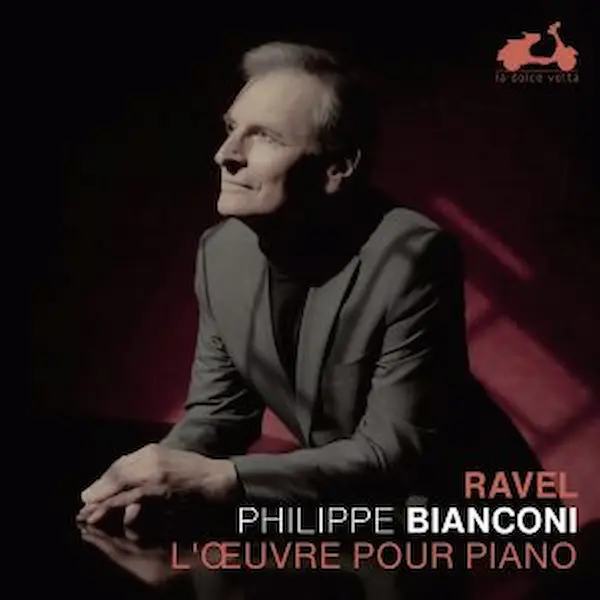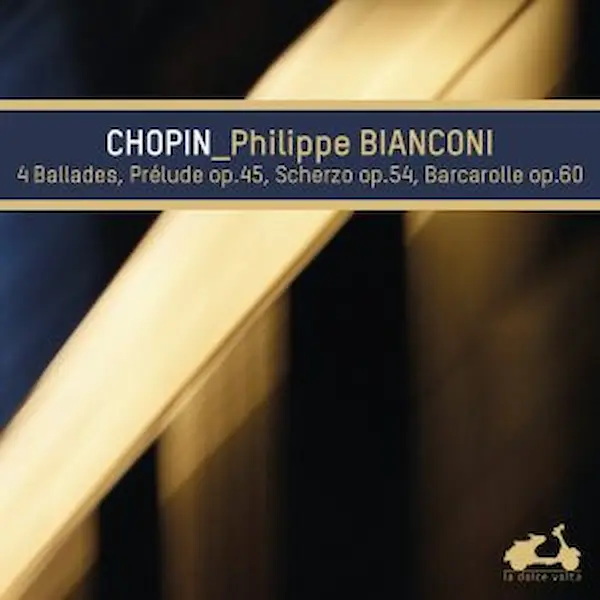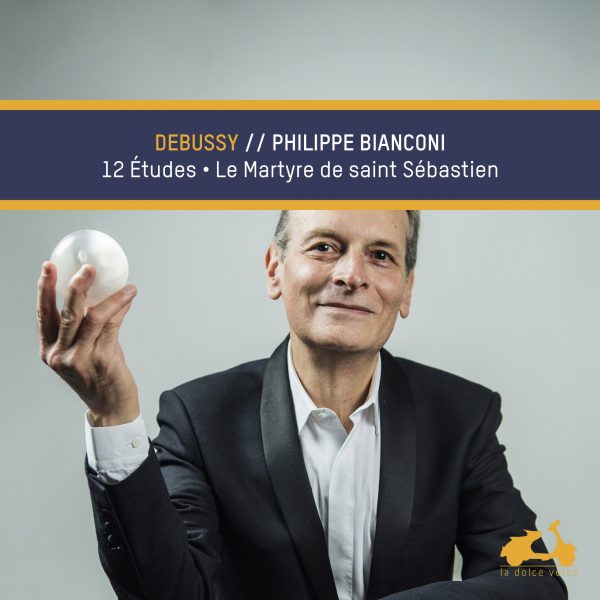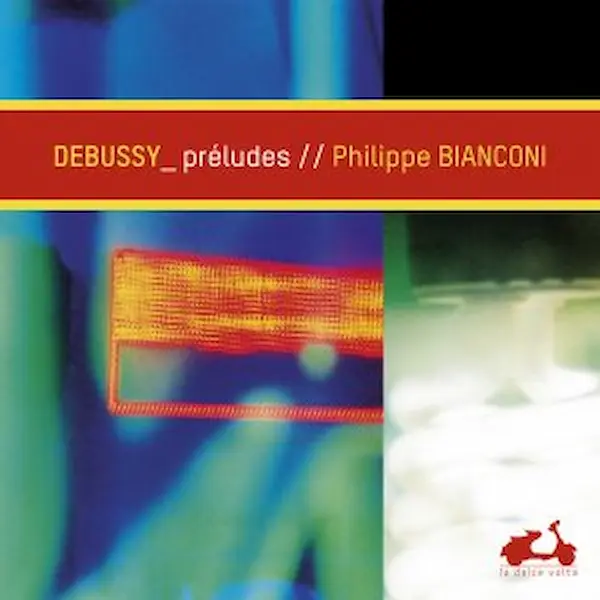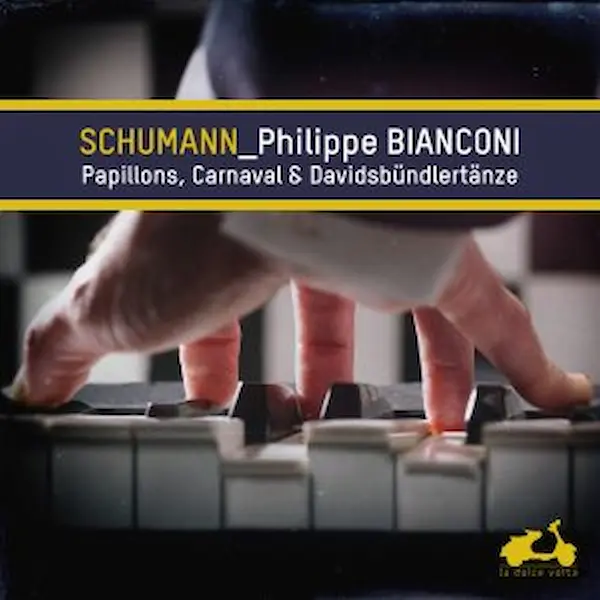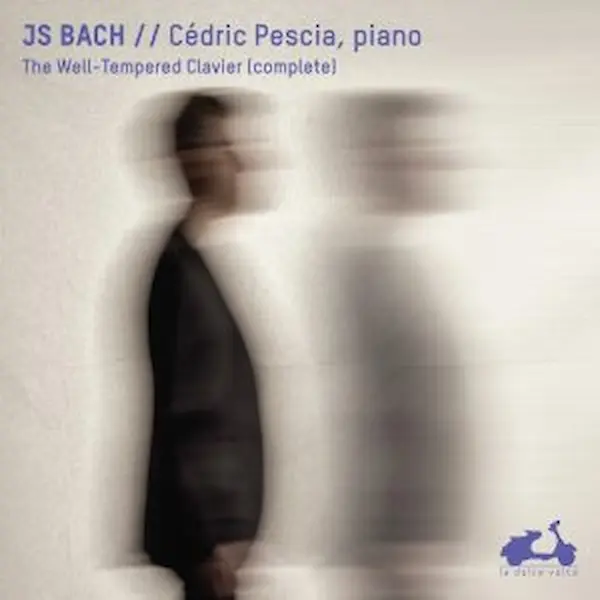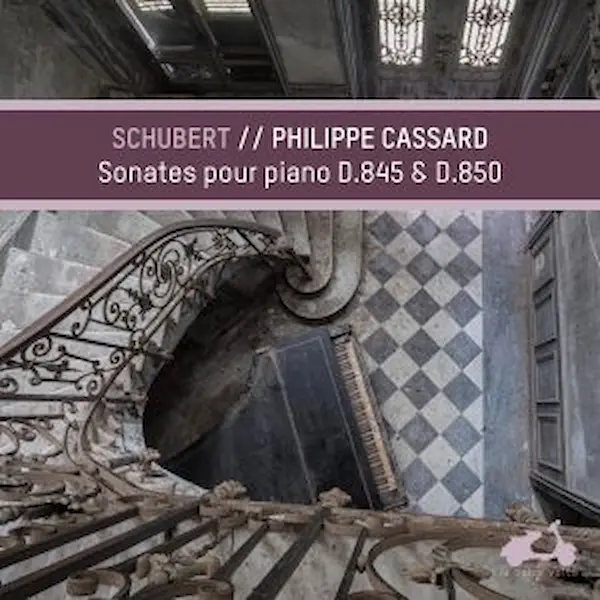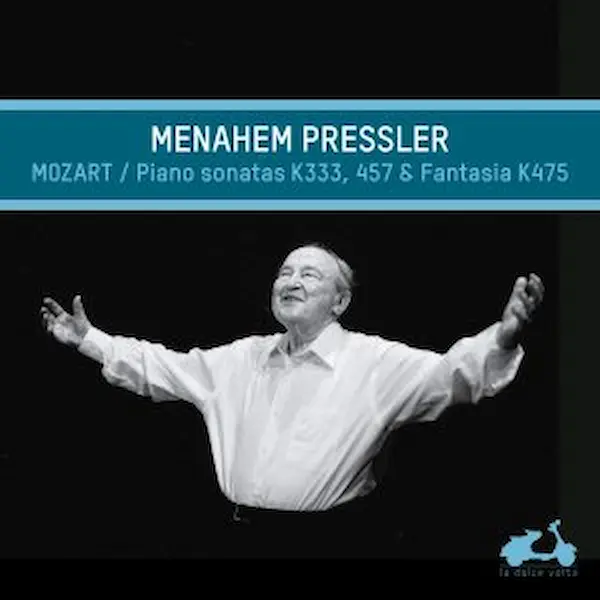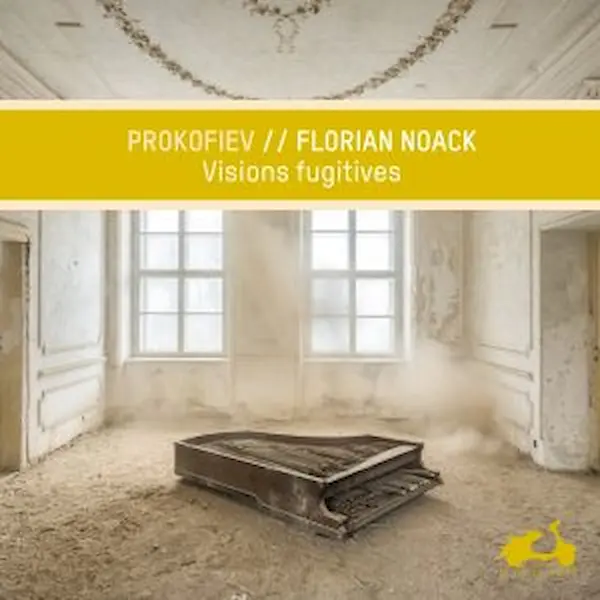RAVEL // The solo piano works
Philippe Bianconi,
20,00 €
While Romanticism still lingered here and there at the dawn of the twentieth century, Ravel turned his back on it: French and modern, his music does not go in for effusiveness. So was Ravel reserved? Was he impassive? Do his piano works, as stylishly turned out as the man himself, reveal nothing of his inner secrets?
Behind the sheer magic of the sound, of its seductive, dazzling surface, Philippe Bianconi detects passion, sensuality, profundity, oscillating between light and shadow, lively, embodied, witty and poetic.
This is distinguished Ravel playing, flavourful, passionate, sensuous, as elegant as it is colourful. From Jeux d’eau to Le Jardin féérique, an enchantment!
CD 1
- Jeux d’eau 5’13
Miroirs
- Noctuelles 4’47
- Oiseaux tristes 4’06
- Une barque sur l’océan 7’30
- Alborada del gracioso 6’21
- La vallée des cloches 5’26
- Menuet antique 6’07
- Pavane pour une infante défunte 6’00
Sonatine
- Modéré 4’05
- Mouvement de Menuet 3’07
- Animé 4’05
- Menuet in C sharp minor 1’04
Valses nobles et sentimentales
- Modéré – très franc 1’22
- Assez lent – avec une expression intense 2’24
- Modéré 1’23
- Assez animé 1’03
- Presque lent – dans un sentiment intime 1’25
- Vif 0’40
- Moins vif 2’38
- Épilogue – lent 3’52
CD 2
- Sérénade grotesque 3’38
Gaspard de la nuit
- Ondine 6’36
- Le Gibet 6’19
- Scarbo 9’23
- Menuet sur le nom de Haydn 1’50
- À la manière de… Borodine 1’38
- À la manière de… Chabrier 1’45
- Prélude 1’39
Le Tombeau de Couperin
- Prélude 3’09
- Fugue 3’34
- Forlane 5’19
- Rigaudon 3’00
- Menuet 4’26
- Toccata 3’58
Ma mère l’Oye
(for piano four hands) with Clément Lefebvre
- Pavane de la Belle au bois dormant 1’33
- Petit Poucet 2’44
- Laideronnette, Impératrice des Pagodes 3’13
- Les Entretiens de la Belle et de la Bête 4’01
- Le jardin féérique 3’05
Philippe Bianconi: the smouldering passion under the ivory
It is from Italy that he takes his name and the passion concealed within him, which gives him his vibrancy when he is on stage. The passion that overwhelms his audience. Italy sings in him with the colours of its language, so familiar to him, of its Mediterranean exuberance in which his childhood was bathed. But it was in Nice that Philippe Bianconi was born and raised, and it was France that moulded him. Which is why artist and man alike are a blend of poise and ardour, discretion and inner flame, clothed in an elegance and a luminosity that may be read in his presence, in his eyes, and can be savoured when he is at the piano.
As a young man, he progressed by leaps and bounds, propelled into international competitions by Pierre Cochereau as soon as he left the Nice Conservatoire. His career path was marked out from the day he entered the class of Simone Delbert-Février, a student of Marguerite Long and Robert Casadesus. ‘Sing!’, ‘Listen!’: even today, he can still hear the injunctions of that refined, enthusiastic woman, stirred by an inner fire, and he utters them in his turn to the students he trains at the École Normale de Musique de Paris. On the byways of those early years, he met Gaby Casadesus: with her he put the finishing touches to the purity of style, the clarity of musical expression he had cultivated since the start of his musical education. With the Russian pianist Vitalij Margulis, he found that density of sound which is his alone, and drew from the innermost recesses of the text, from the depths of the harmonies, that expressiveness which he always places at the service of meaning. And then: two birds with one stone! Having won First Prize at the Robert Casadesus Competition in Cleveland, then Second Prize at the Van Cliburn Competition, he triumphed at Carnegie Hall, and his American career was launched . . . Then came Europe, France, the world, in recital or alongside today’s most eminent musicians. And, still following in the footsteps of Gaby and Robert Casadesus, but also of Nadia Boulanger, it was only natural that he should succeed Philippe Entremont as artistic director of the American Conservatory of Fontainebleau for five years.
In concert, the vibration of the air when silence fills the hall is precious to him, liberating and inspiring. He sometimes takes on the most incredible challenges, such as playing the two Brahms concertos in one evening. When he returns to his corner of paradise somewhere in the south, between the sea and the mountains, he remembers his youth, his parents who took him to the opera, and the love for the voice that he felt at a very early age and that will never leave him. He remembers Hermann Prey, whom he met at the age of twenty-two, and Schubert, who brought them together on record and, for eight years, on the great stages of the world, the Wigmore Hall, La Scala, Munich, New York . . . Then his piano sings, breathes, becomes body and soul. And Chopin, Schumann, Brahms, not to mention his beloved French masters, Debussy and Ravel, in sublime abandonment, confide the secrets of their treasures to this musician-poet.




